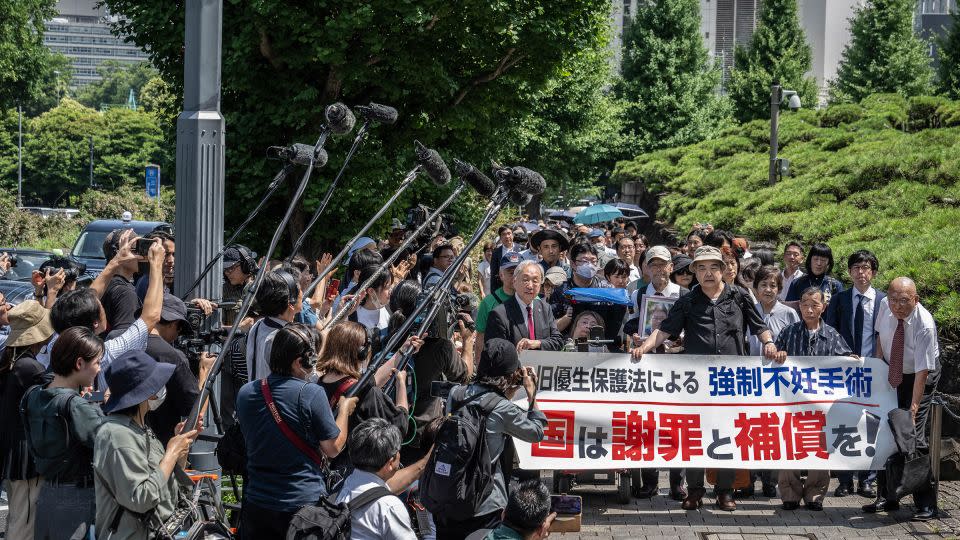Japan court orders government to pay damages for forced sterilizations under now-defunct eugenics law
In a landmark decision, Japan’s Supreme Court has ordered the government to pay damages to people who were forcibly sterilized under a now-defunct eugenics law, ruling the practice was unconstitutional and had violated their rights.
The Eugenic Protection Law, in place from 1948 to 1996, allowed authorities to forcibly sterilize people with disabilities, including those with mental disorders, hereditary diseases or physical deformities, and leprosy. It also allowed forced abortions if either parent had those conditions.
The law had aimed to “prevent the increase of the inferior descendants from the eugenic point of view and to protect the life and health of the mother as well,” according to a copy of the law – which listed “remarkable abnormal sexual desire” and “remarkable clinical inclination” among the conditions targeted.
About 25,000 people were sterilized without consent during that period, according to the court ruling, citing ministry data.
Though the government had offered to compensate each victim 3.2 million yen (about $19,800) in 2019 under a relief law, victims and their supporters argued that was far from enough – with a number continuing their fight in court.
Wednesday’s ruling addressed five such lawsuits, filed by plaintiffs from across the country to lower courts which then advanced to the Supreme Court.

In four of those cases, the lower courts had ruled in favor of the plaintiffs – which the Supreme Court upheld on Wednesday, ordering the government to pay 16.5 million yen (about $102,000) to the plaintiffs and 2.2 million yen ($13,000) to their spouses.
In the fifth case, the lower court had ruled against the plaintiffs and dismissed their case, citing the 20-year statute of limitations. The Supreme Court overturned this decision on Wednesday, calling the statute “unacceptable” and “extremely contrary to the principles of justice and fairness.”
The case is now sent back to the lower court to determine how much the government should pay.
“The legislative intent of the former Eugenic Protection Law cannot be justified in light of the social conditions of the time,” said Judge Saburo Tokura when handing down the judgment, according to public broadcaster NHK.
“The law imposes a grave sacrifice in the form of the loss of reproductive capacity, which is extremely contrary to the spirit of respect for individual dignity and personality, and violates Article 13 of the Constitution,” he added – referring to every person’s right to life, liberty, and the pursuit of happiness.
After Wednesday’s decision, plaintiffs outside the court – elderly men and women, many in wheelchairs – celebrated with their lawyers and supporters, holding up banners that read “victory.”
They are among 39 total plaintiffs who have filed lawsuits in recent years – with six having died since, according to NHK, highlighting the urgency of these cases as victims reach their final years.
In a press conference after the court ruling, Chief Cabinet Secretary Yoshimasa Hayashi expressed the government’s remorse and apology to victims, NHK reported. The government will promptly pay the compensation, and consider other measures such as a meeting between the plaintiffs and Prime Minister Fumio Kishida, he said.
For more CNN news and newsletters create an account at CNN.com

 Yahoo News
Yahoo News 
